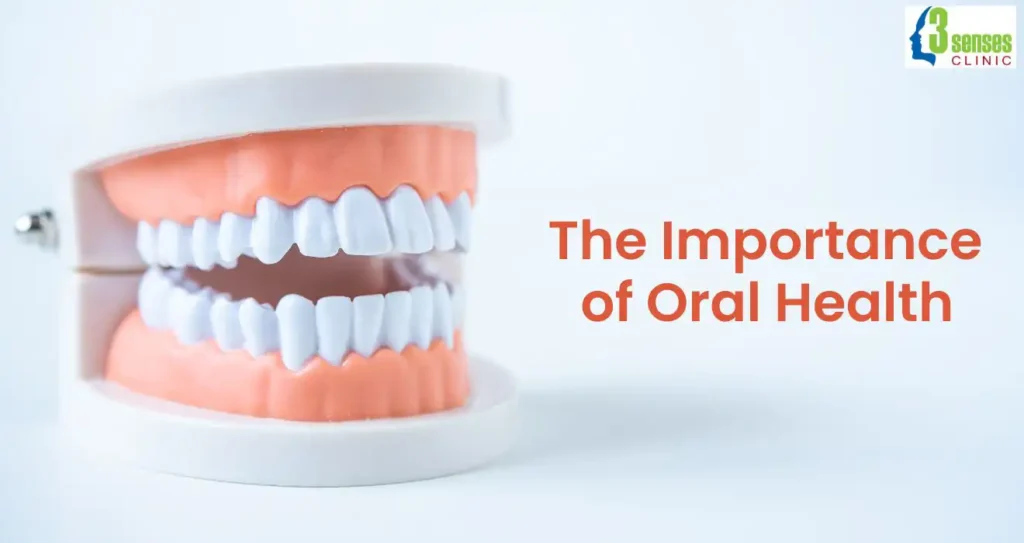The Importance of Oral Health: A Guide to a Healthy Smile

Oral health plays a crucial role in our overall well-being, yet many people overlook its significance until they experience discomfort or dental issues. Maintaining good dental health goes beyond having a bright smile—it is essential for preventing various health problems and ensuring a better quality of life.
Also Read: What is Cosmetology and What Does a Cosmetologist Do
Understanding Oral Health and Its Impact
Oral health encompasses the well-being of your teeth, gums, and the entire mouth. A healthy mouth enables you to eat, speak, and express yourself confidently. Poor oral hygiene can lead to problems such as cavities, gum disease, and even systemic health issues like heart disease and diabetes. Therefore, prioritizing mouth care is not just about aesthetics but also about maintaining overall health.
The Purpose of Oral Hygiene
The primary purpose of oral hygiene is to prevent dental problems and maintain healthy teeth and gums. Regular brushing, flossing, and professional dental check-ups help in removing plaque, a sticky film of bacteria that accumulates on teeth. If left untreated, plaque can lead to tooth decay and gum infections, ultimately affecting your overall dental health.
Proper oral hygiene also plays a role in preventing bad breath (halitosis), which is often caused by food particles trapped between teeth or bacteria buildup. A well-maintained oral care routine helps keep your breath fresh and your mouth free from harmful bacteria.
Also Read: What is ENT? Understanding the Role of an ENT Specialist
Essential Mouth Care Practices
To maintain optimal oral health, it is essential to follow these daily practices:
- Brushing Twice a Day: Use fluoride toothpaste and a soft-bristled toothbrush to clean your teeth thoroughly. Brush for at least two minutes, covering all surfaces.
- Flossing Daily: Flossing helps remove food particles and plaque from between the teeth and under the gum line, where a toothbrush may not reach.
- Using Mouthwash: An antimicrobial mouthwash can help reduce bacteria, strengthen teeth, and freshen breath.
- Maintaining a Healthy Diet: Eating a balanced diet rich in calcium, vitamins, and minerals supports strong teeth and gums. Avoid excessive sugary foods and drinks that can contribute to tooth decay.
- Regular Dental Check-ups: Visiting a dentist at least twice a year ensures early detection and treatment of potential oral health issues.
The Connection Between Oral Health and Overall Well-being
Scientific studies have shown a strong link between oral health and general health. Poor dental hygiene has been associated with conditions such as:
- Heart Disease: Bacteria from infected gums can enter the bloodstream, leading to inflammation and increasing the risk of heart-related conditions.
- Diabetes: People with diabetes are more prone to gum disease due to increased blood sugar levels, which can affect healing and infection control.
- Respiratory Infections: Bacteria from the mouth can travel to the lungs, potentially leading to respiratory issues like pneumonia.
By maintaining proper oral hygiene, you not only protect your dental health but also reduce the risk of these systemic diseases.
Achieve Healthy Teeth with Professional Care
While a daily oral care routine is essential, professional treatments can enhance your dental health. If you are looking for expert guidance and services to maintain a healthy smile, consider seeking professional dental care. From routine cleanings to advanced treatments, expert care ensures that your oral health remains in top condition.
Prioritizing oral health today can save you from costly and painful dental problems in the future. A commitment to good dental hygiene is an investment in your overall well-being, ensuring that you maintain a confident smile for years to come.

